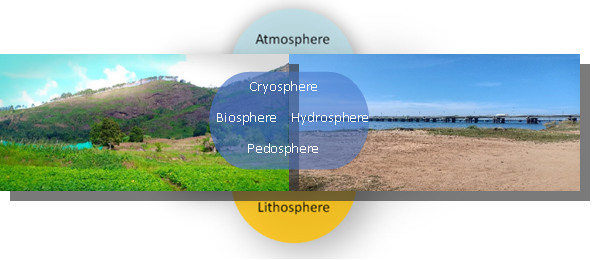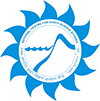Environmental Hydrology Group (EHG)

Water is the most important resource whose continued supply is to be ensured for the sustenance of life on earth. Agricultural productivity, environmental purity, industrial growth, power generation and several other natural and man-made processes are also depended on water availability. Hydrology, the scientific study of water in relation to the effects of precipitation, evaporation and transpiration as well as its occurrence in rivers, lakes and on or below the land surface receives paramount importance in this era of ever-changing climate and human interventions on environment. Many studies reveal that the skin of the earth from its surface to the aquifer bottom is under severe stress, mainly due to the adversities of anthropogenic activities. A comprehensive understanding of the different hydrological processes operating in different environmental components/subsystems in the surface and subsurface horizons is a pre-requisite for better planning and sustainable development of our limited fresh water resources.
This Group focuses on basic and applied aspects of research in hydrology and water resources with specific reference to Earth’s Critical Zone. Earth’s Critical Zone is a complex natural reactor where inputs of solar energy and, atmospheric deposition and gases interact with biota and rock masses of the continents to maintain soil, nourish ecosystems and yield clear water. The Critical Zone is experiencing ever increasing pressure from rapid economic developments. A better understanding of these processes taking place from tree to the aquifer bottom is very essential in the context of India’s rapid economic developments.
This Group focuses on the study of physico-chemical, geological and biological processes and reactions that governs the characteristics of natural environment. The Group also studies the biogeochemical cycles of elements and their dynamics/fate with respect to the changing climate and environment together with signatures of paleoclimate proxies. We employ geochemical and microbiological modeling along with species/isotopic level studies to interpret the environmental processes and their effects on the global biogeochemical cycles. The thrust areas of research include biogeochemical studies of water environs including estuarine, coastal, springs and fresh waters in main land/island systems with emphasis on solute fluxes/dynamics and speciation, pesticide/organics fragmentation and degradation, water quality monitoring, pollution assessment and mitigation strategies.




 RTI Act
RTI Act
